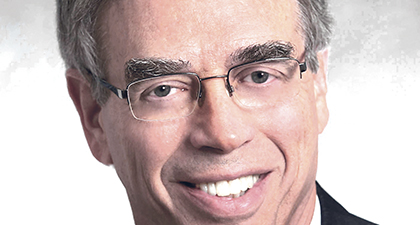In his first interview with The CJN since being appointed finance minister, Joe Oliver said he will seek to “broaden” Canada-Israel investment ties as well as balance the federal budget by next year in a steady-as-she-goes approach to lower taxes and “create job growth from coast to coast.”
Oliver also strongly defended himself against an Opposition accusation that he’s a climate change denier.
“I was disappointed to hear that,” Oliver said in the half-hour telephone interview, referring to comments by New Democratic Party leader Thomas Mulcair, who had called Oliver’s appointment the prestigious finance post an “embarrassment” due to his supposed denial of climate change.
“I do not deny climate change. It’s a question of what policy should be. Policy, that’s all. Not every project that exploits natural resources hurts the environment.”
Oliver, 73, a Montreal native and three-year MP for the Toronto riding of Eglinton-Lawrence, described himself as a “late bloomer” in politics after four decades in finance.
His first days in the new job, he said, have been spent in briefing rooms, talking to his provincial counterparts and appointing political staff.
Oliver has visited Israel six times, three of them in his previous post as natural resources minister before succeeding Jim Flaherty March 19 to become Canada first Jewish finance minister.
That appointment, Oliver said, came out of the blue. Flaherty had been finance minister for eight years, since day one of the Tory government under Prime Minister Stephen Harper.
“I was on a flight to Vancouver when the call came through,” Oliver related. “I had no idea what it was about, and I had no idea Jim Flaherty was going to resign.”
Nevertheless, Oliver sees himself as well suited to his new role and the culmination of his many years of experience.
“It will make me more effective,” he said.
Asked if he now realizes he had become the de-facto “minister of the Jewish community” as the result of his appointment, Oliver laughed.
“I am proud to have the chance to serve all Canadians. There are substantial numbers from the Jewish community in my riding, and I am have very grateful for their support and everyone’s support,” he said. “It’s been very meaningful to me.”
More concretely, Oliver has a plan of action as finance minister.
He will balance the federal budget in 2015, he said. Canada is in an enviable position, because “our net debt is half that on average compared to other members of the G7 nations.”
As the country’s demographics change, it will also be important to make sure that seniors can continue being part of the workforce if they want to be, he said.
“We want to make sure that those who work are working because they want to, not because they have to [for financial reasons].”
Oliver expects the unprecedented level of bilateral friendship and co-operation that has flourished with Israel under Harper’s Tories will continue. (Oliver accompanied the prime minister on his historic first visit to the Jewish state in January.)
Regarding how that goal might be furthered on his watch, Oliver said the focus will be on “broadening the investment relationship” to fuller potential, adding “we are now in our early days and we have to see how that can be done.”
He said there’s no reason bilateral trade between Canada and Israel could not increase substantially from its current level of $1.5 billion.
Oliver said he doesn’t regret using the word “radical” to describe certain environmental groups. In his view, they’re so dogmatic that they “oppose every single major project” out of a perceived threat to the environment that’s not necessarily backed up by evidence.
When he was natural resources minister, he was a strong supporter of the controversial XL Keystone pipeline, which was opposed by environmental groups.
He noted he also worked closely with Israel in providing expertise on tapping vast natural gas deposits off its Mediterranean coastline and on high-tech innovation.
“It is great when diplomatic relations are so good that both countries benefit from it,” he said. “We do what we can to encourage it, and I think it’s important, I really do. There is a level of special [mutual] affection there that is extraordinary, and we can build on it in concrete ways.”
